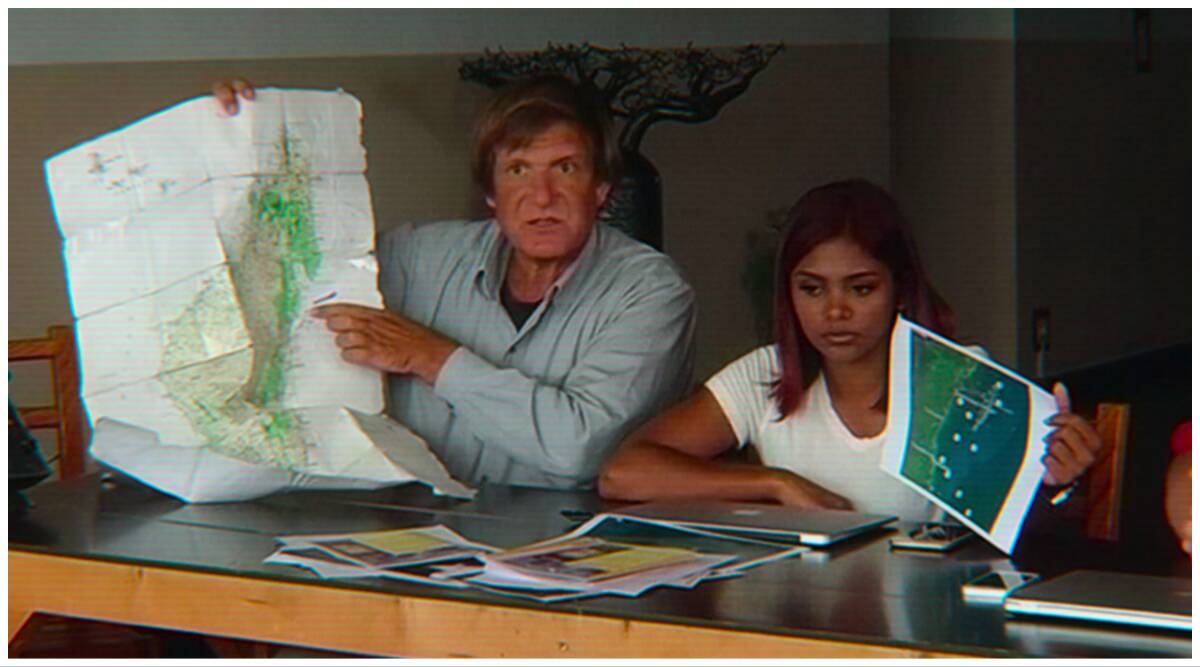MH370 The Plane That Disappeared review: Ludicrous Netflix documentary deliberately peddles conspiracy theories

Every episode of the new Netflix documentary series MH370: The Plane That Disappeared begins with a voiceover claiming that the 2014 disappearance of a commercial airliner remains ‘one of the greatest aviation mysteries of all time’. But instead of trying to solve it, or investigating why nobody has been able to solve it, the series wastes everybody’s time by deliberately circling around in the air, even though it has been cleared to land. It’s a cruel joke, really, and very disrespectful to the people who lost family members in the tragedy.
The world was gripped when, in 2014, a Malaysian Airlines flight from Kuala Lumpur en route to Beijing vanished without a trace. No wreckage was found in the South China Sea, where it was last spotted on radar, and despite the best efforts of multiple countries, nobody could locate either the aircraft or its wreckage. It was as if it had disappeared off the face of the earth. Stories such as this often attract armchair sleuths and self-declared ‘experts’. But most filmmakers have the good sense to not feature them in a straight-faced documentary.
However, over the course of three episodes, MH370: The Plane That Disappeared gives a platform to such rubbish that Professor Calculus himself could have popped up and claimed that the Tintin story Flight 714 was based on fact, and I wouldn’t have batted an eyelid. It would be inaccurate to compare MH370: The Plane That Disappeared to one of those documentaries about the Loch Ness Monster that spend a couple of hours with a raised eyebrow, as if to say, “Yes, we know this is gobbledegook,” only to add with a mischievous smile, “But is it?” Because director Louise Malkinson is fully aware that most of the people she chosen to foreground over others in the series are kooks. And this is what makes MH370: The Plane That Disappeared an uncommonly cynical exercise.
“There was a swirling fog of unanswered questions. But for me, it was clear. The overwhelming body of evidence pointed strongly to my theory,” a talking head says in one of the most comically nonsensical statements in recorded history. This person, a journalist, has a habit of taking every piece of official communication and filtering it not through the regular journalistic sense of skepticism, but using it as a launching pad for fully imagined fantasies. This is the kind of guy who’d normally be restricted to two seconds of screen time in a satirical montage in a regular documentary, but MH370: The Plane That Disappeared presents him like its own version of FI: Drive to Survive’s Will Buxton for nearly two full episodes.
Depending on the nationality of the person speaking, different governments are held responsible — not for bungling up the investigation, but for being a part of some harebrained global espionage racket. Everybody has ideas about the how and when, but nobody bothers to ask the most important question: why. Episode one is devoted almost entirely to the theory that the captain of the aircraft downed the plane in a murder-suicide. The second episode suggests that secret agents infiltrated the ‘nerve centre’ of the aircraft and seized control of it after hacking into its computers.
Things really take a turn when, in episode three, an eccentric man described only as ‘adventurer’ shows up. This character claims to have recovered debris from the missing aircraft after simply calling up some people in Madagascar, walking along the beach, and spotting parts of an plane scattered around. He is able to do this years after a concentrated international effort to locate the crashed aircraft resulted in zilch. It’s one thing to question the adventurer’s credibility, but our favourite journalist takes the narrative into such an astonishing direction that even he can’t help but question his sanity.
Despite all this, he’s given the largest chunk of screen time in the series. Even though the filmmakers had access to far more reliable voices, including an aerospace veteran who occasionally pops up to offer fact-based inferences, and later denounces the conspiracy theorists as attention-seeking tools of distraction. But having him say this doesn’t absolve the series of its otherwise ethical dubiousness.
Advertisement
MH370: The Plane That Disappeared could have very easily focused on the human toll of the tragedy. Several next of kin appear to still be seeking closure, and it’s harrowing to see them helplessly seek answers. A handful of them have even consented to participating in this series. But we must remember one thing: it is possible, the Air Crash Investigation series has shown us, to take verifiable facts and present them through a scandalous lens. One needn’t invent them. But MH370: The Plane That Disappeared has the tone and texture of a reality series, and that’s irresponsible.
MH370: The Plane That Disappeared
Director – Louise Malkinson
Rating – 2/5
This article has been archived for your research. The original version from The Indian Express can be found here.


